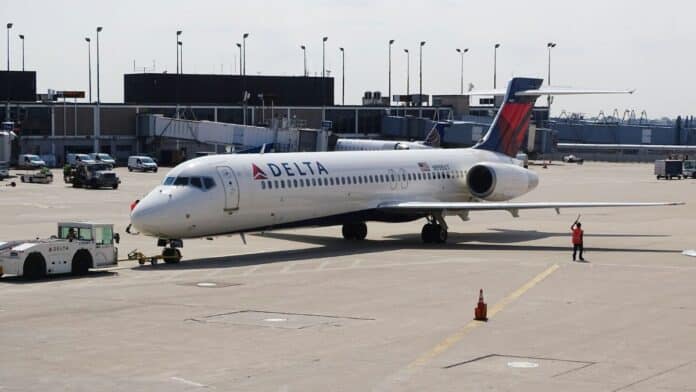When one hears the term peace process, it's tempting to believe that the war in the Middle East is merely political—borders, land, and ceasefires. Yet that interpretation misses something far more profound. . .
China, Russia, and the Road to Armageddon
A few years ago, a headline from The New York Times caught my attention: “Iraq Suffers as the Euphrates River Dwindles.” It resonated not because of climate concerns, but because of prophecy. The article inadvertently referenced one of the most stunning end-time predictions in Scripture. . .
Judas Returns: The Shocking Truth About the Coming Antichrist
For centuries, theologians have debated the identity of the Antichrist—the mysterious world leader who will deceive the nations, unite the world under his rule, and wage war against God’s people. . .
Holy Smoke: How Trump and Kennedy Drew the Same Line in the Sand
In the austere halls of power, a small act of indulgence can become a symbol—sometimes even a sentinel—of grander principles. Such was the tale when President John F. Kennedy, the young Catholic leader of a restless nation, signed the sweeping U.S. trade embargo against Cuba— aware of what it would mean not only for geopolitics but for the humble cigar. . .
Trump and MacArthur Were Right About China
When President Donald J. Trump warned that “China is not our friend—it is our greatest threat,” the political class scoffed. But like General Douglas MacArthur seventy years earlier, Trump saw something the elites refused to see: a communist empire bent on domination, deception, and global control. . .
The “No Kings” Farce: When Leftist Protesters Crown Their Own Monarchs
In cities from New York to Los Angeles, throngs of protesters donned inflatable crowns and chanted "No Kings!" this past weekend, railing against President Donald Trump's supposed authoritarian streak. . .
Delta Flight Turns Back After Disgusting Smell Fills Cabin
A Delta Air Lines flight was forced to return to Los Angeles International Airport (LAX) on October 18 after passengers and crew detected a foul odor midair. The plane, bound for Salt Lake City International Airport (SLC), had to abort its trip shortly after takeoff due to what was later identified as a spoiled food item brought onboard by a customer.
According to Delta, the smell was not related to any onboard food or beverage services. The aircraft was carrying 189 passengers, two pilots, and four flight attendants when the odor was detected. Delta stated that the crew followed standard safety procedures in deciding to return to LAX.
Once back in Los Angeles, passengers deplaned and waited several hours before resuming their journey to Salt Lake City. Flight tracking data from FlightAware confirmed the flight’s delayed departure and eventual arrival in Utah.
In a statement to People magazine, a Delta spokesperson apologized for the disruption: “As nothing is more important than the safety of our customers and people, our crew followed standard procedures to safely return to Los Angeles after an unpleasant odor was detected onboard.”
This is the latest in a series of incidents involving Delta Air Lines in recent months. Earlier, two Delta regional planes collided at low speed while taxiing at New York’s LaGuardia Airport, causing a minor injury. Over the summer, a Delta copilot was arrested at San Francisco International Airport over allegations involving child sexual abuse material.
The airline has faced growing scrutiny for its operational lapses, passenger experience issues, and personnel-related controversies.
Trump Already Spending Millions for Midterms
President Donald Trump has already started deploying funds to support Republicans in the 2026 midterm elections, according to James Blair, Deputy Chief of Staff for Legislative, Political, and Public Affairs. In a Thursday interview on Punchbowl News’ “Fly Out Day” podcast, Blair confirmed that the president is spending—but not advertising every move.
“I do think the President will spend. I’m very confident of that. In fact, the President is spending already. Don’t always advertise it,” Blair told host Jake Sherman.
While Trump is not yet spending in Texas—where Sen. John Cornyn, Rep. Wesley Hunt, and Attorney General Ken Paxton are locked in a high-stakes GOP primary—Blair emphasized that Trump would be willing to invest there if needed to ensure the seat stays red.
Blair also highlighted Trump’s success in raising money for the National Republican Congressional Committee (NRCC), noting that the NRCC pulled in a record $35 million in just four weeks following a Trump-hosted dinner earlier this year.
“He also helps them raise money… I’m quite confident he’ll spend. I’m quite confident that money will not be our limiting factor,” Blair said.
Blair added that Trump is strategic with how he deploys resources, stating, “He knows how to deploy resources, and at the end of the day, he will spend what it takes and help his team win.”
In August, Trump pointed to another campaign strength—his record on drug prices. He cited a series of “most-favored-nations” negotiations as a major win, claiming reductions of up to 1,500 percent on some pharmaceuticals, especially those from Pfizer and EMD Serono.
With spending already underway and momentum building, Trump’s influence in shaping the 2026 midterms is unmistakable.
North Carolina Exposes Ugly Truth Behind Human Trafficking
A four-part webinar series titled “Behind the Demand” will begin next week in North Carolina, led by first-term Democrat Attorney General Jeff Jackson. The 90-minute sessions will run on Wednesday nights and are produced by the NC Demand Reduction Task Force.
The series aims to examine the demand for commercial sex and low-cost labor that fuels human trafficking in the state. Organizers hope to equip individuals, communities, and systems with strategies to disrupt trafficking networks at the source—demand.
The webinar schedule is as follows:
- Oct. 29 – What Fuels Trafficking? Understanding Demand
- Nov. 5 – Culture in the Crosshairs: Why Beliefs Shape Behavior
- Nov. 12 – Survivor Insights: Lessons from the Inside
- Nov. 19 – Your Role in the Ripple Effect: Join the Demand Reduction Effort
Preregistration is open on the task force’s official website.
North Carolina has heavily invested in anti-trafficking measures in recent years. In January, the North Carolina Human Trafficking Commission announced a recurring $500,000 grant program to support victim services. In 2023, the Buffet Foundation awarded a $9.6 million, five-year grant to the State Bureau of Investigation to support its Human Trafficking Unit. Legislative funding has reached millions over the past decade.
While there is no fixed estimate on the cost of trafficking to taxpayers, the toll includes pressure on law enforcement, courts, health care, jails, and victim services. A 2021 study found it costs the state $33,000 annually to incarcerate a single inmate.
The NC Demand Reduction Task Force describes itself as a statewide coalition involving anti-trafficking professionals across diverse sectors. Its goal is to implement a data-driven strategy aimed at reducing the demand for sex and labor trafficking in the state.
Eight Sleep Bedowners Roasted in AWS Outage Nightmare
A major Amazon Web Services (AWS) outage on October 20 exposed the dark side of the so-called “smart home” revolution, after users of Eight Sleep’s luxury smart beds found themselves unable to control their mattresses—resulting in overheated, unresponsive, or even tilted beds in the middle of the night.
Eight Sleep’s “Pod” beds, which retail for over $2,000, rely entirely on cloud connectivity for temperature regulation and biometric tracking. When AWS servers crashed in the early morning hours, the bed’s control app went offline, leaving customers stuck with whatever settings were last active. For many, that meant sleeping in a sweltering bed or losing cooling features entirely.
Dozens of frustrated users reported disrupted sleep and physical discomfort. One viral complaint from user Alex Browne described his bed being stuck nine degrees above room temperature. Others said their beds were frozen in awkward, inclined positions. Users were further outraged to learn the devices lacked any offline mode or manual override, leaving them helpless during the outage.
This isn’t the first time Eight Sleep has come under fire. In 2024, cybersecurity researchers discovered exposed AWS keys tied to the company, potentially allowing hackers to access customer beds remotely. Now, the October 20 outage has sparked new concerns—not just about convenience, but about safety and the growing risks of putting everyday devices under centralized internet control.
Eight Sleep CEO Matteo Franceschetti apologized for the incident and announced that the company is now working to add an offline “outage mode” to prevent similar problems in the future. But the damage may already be done: consumers are increasingly questioning the wisdom of relying on the cloud for basic household comfort.












